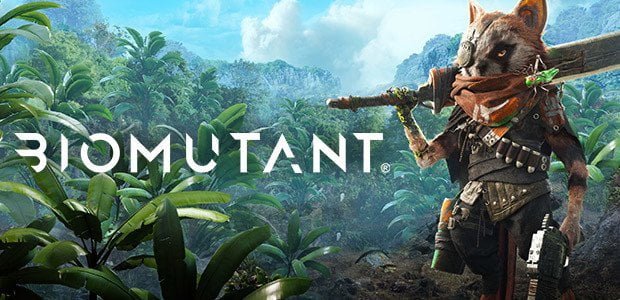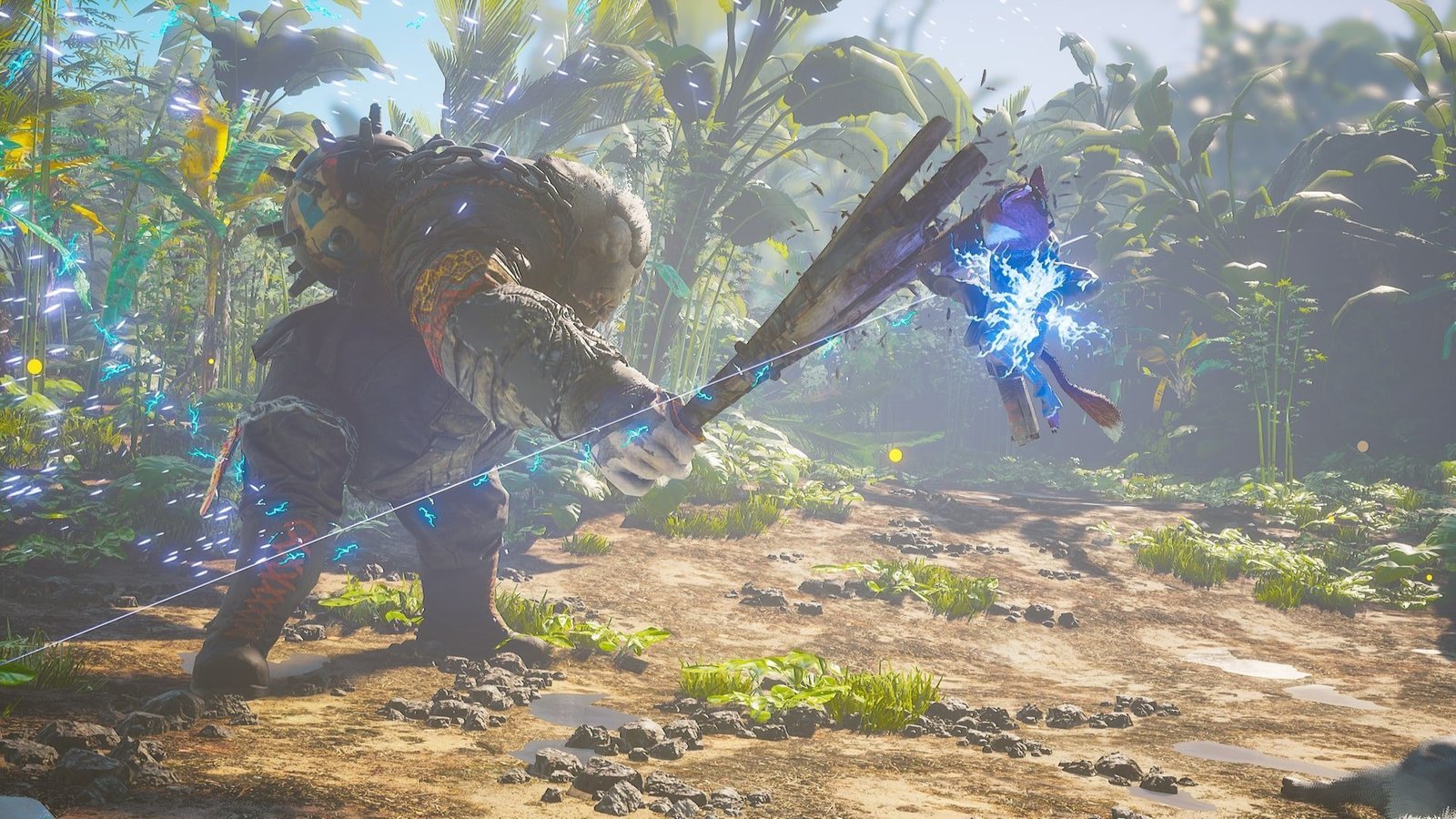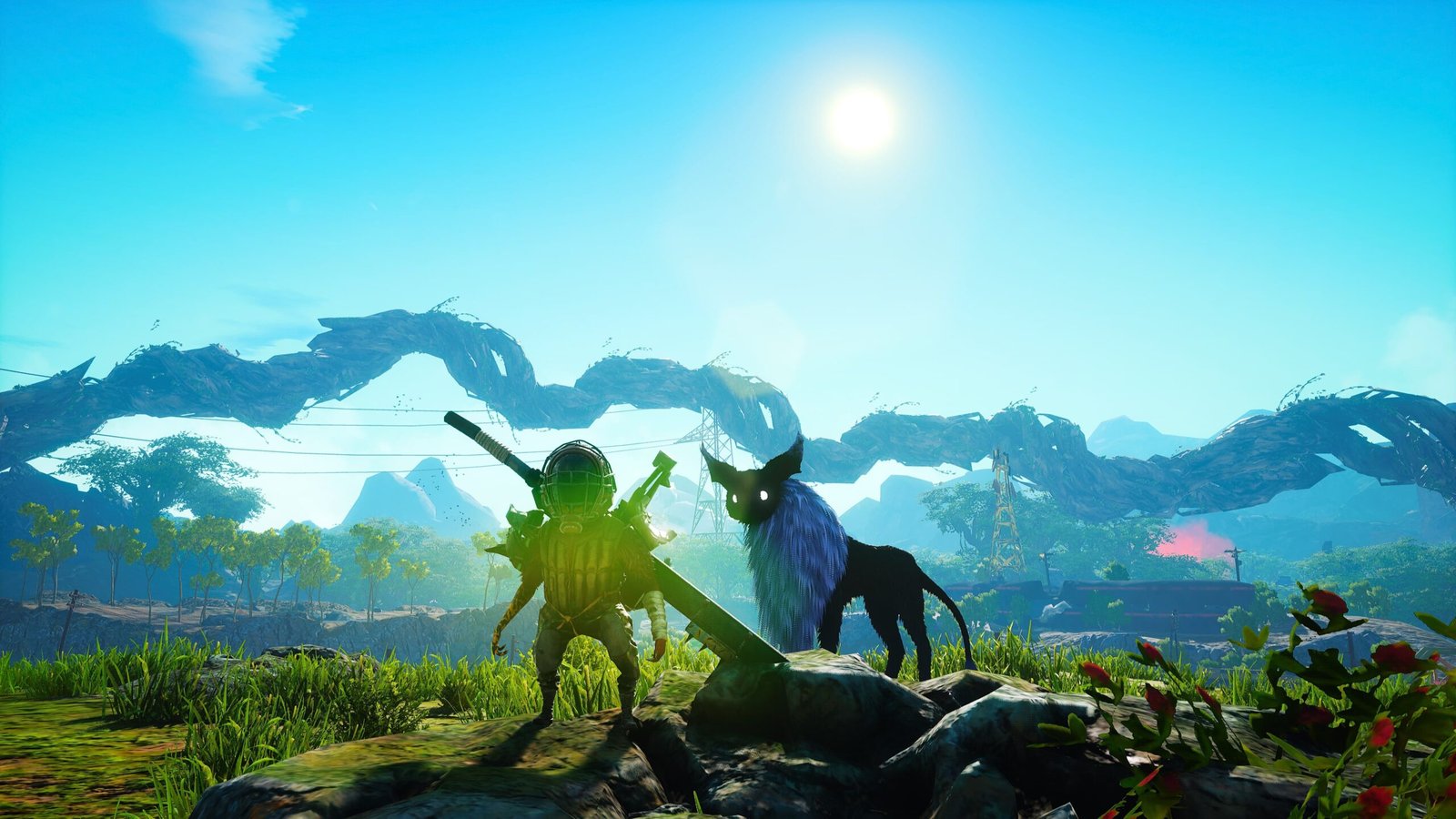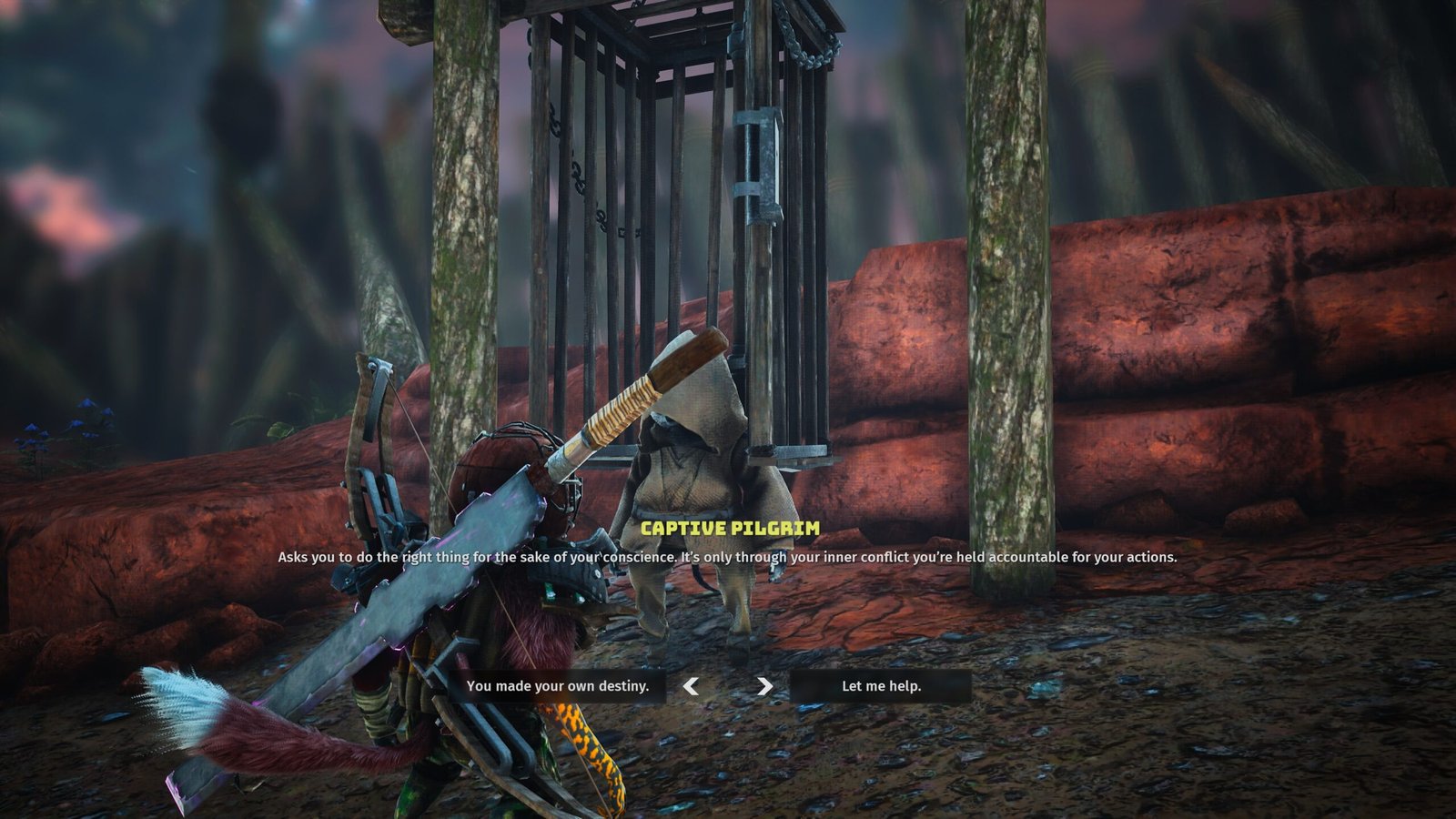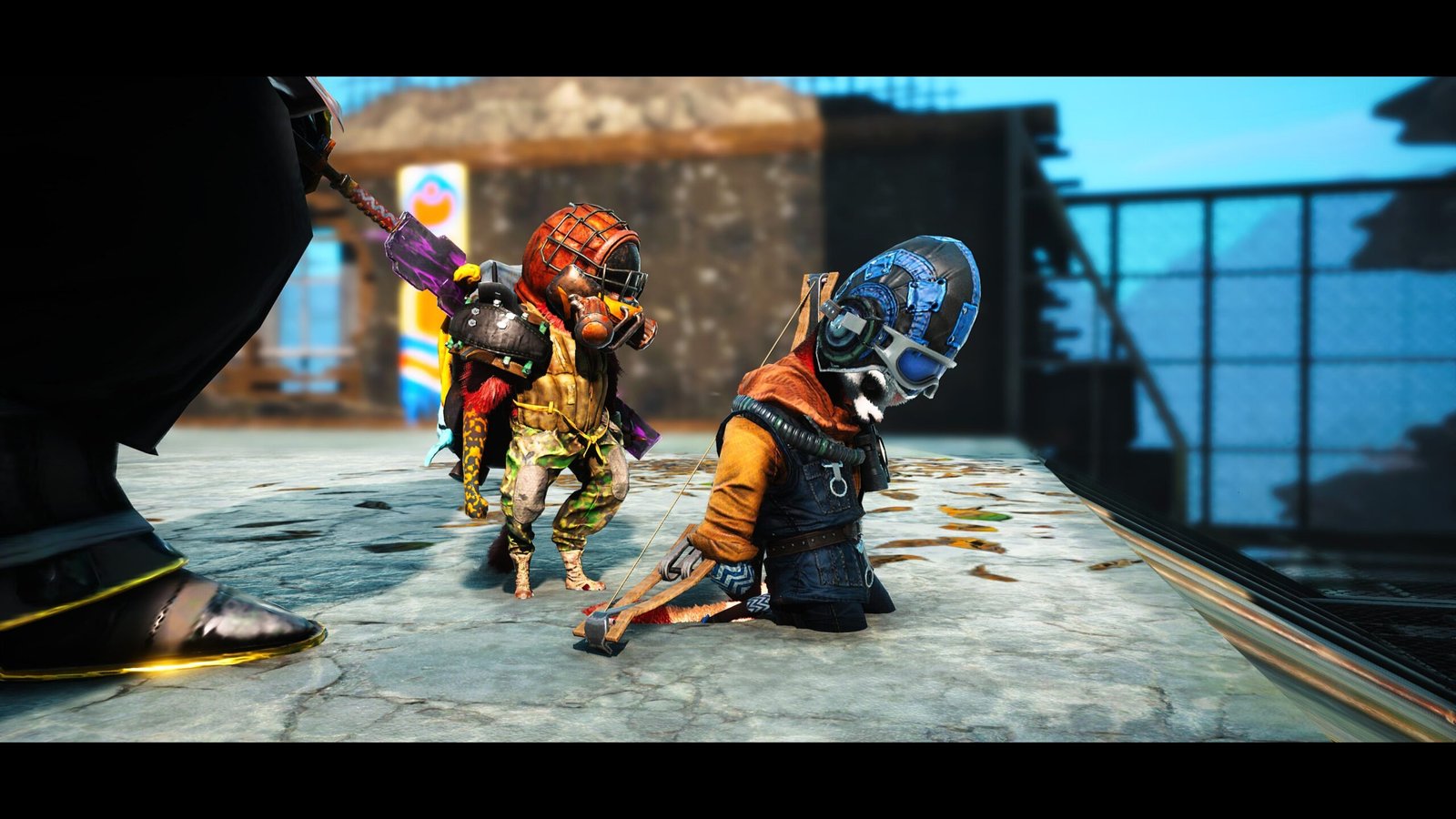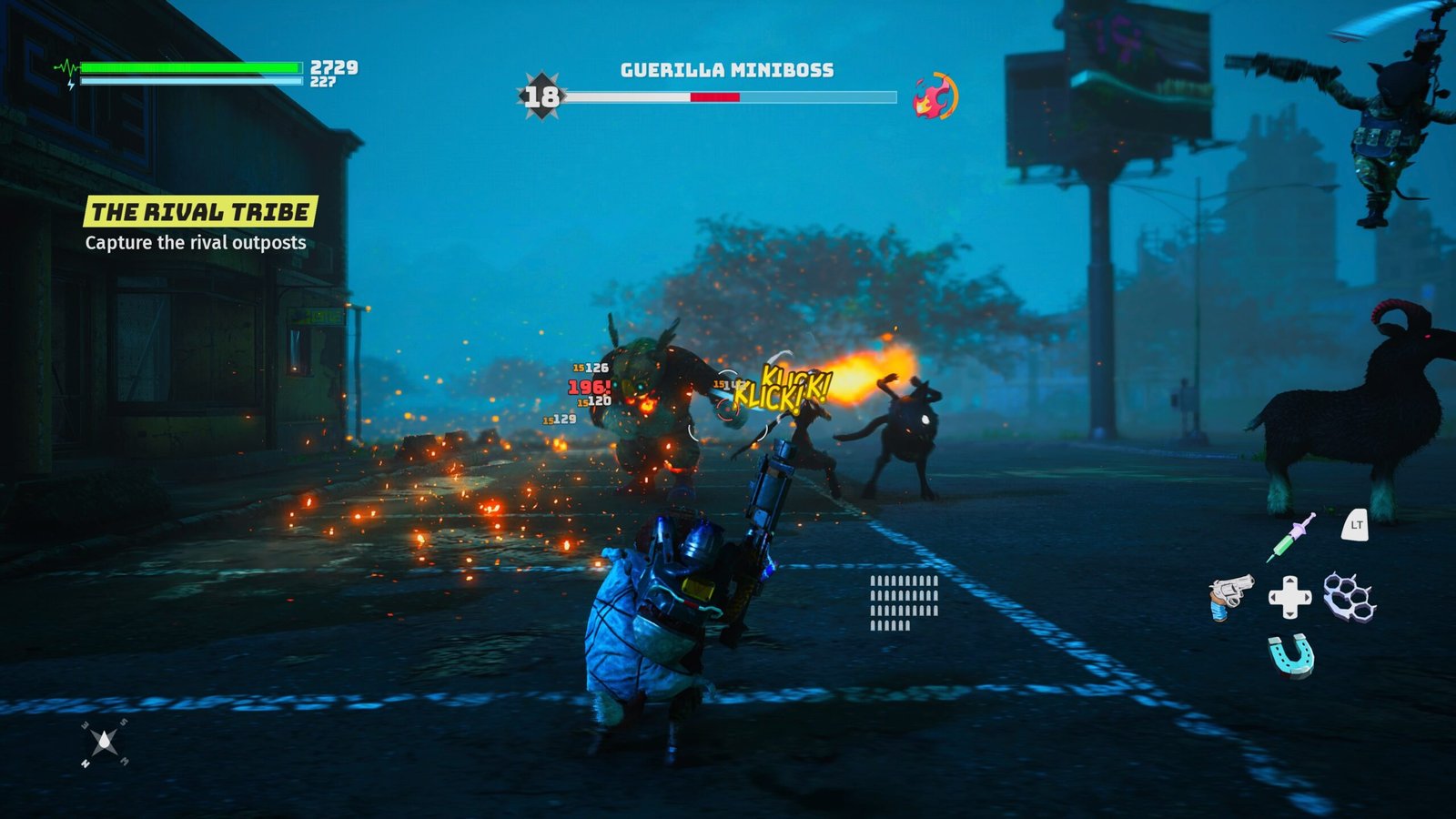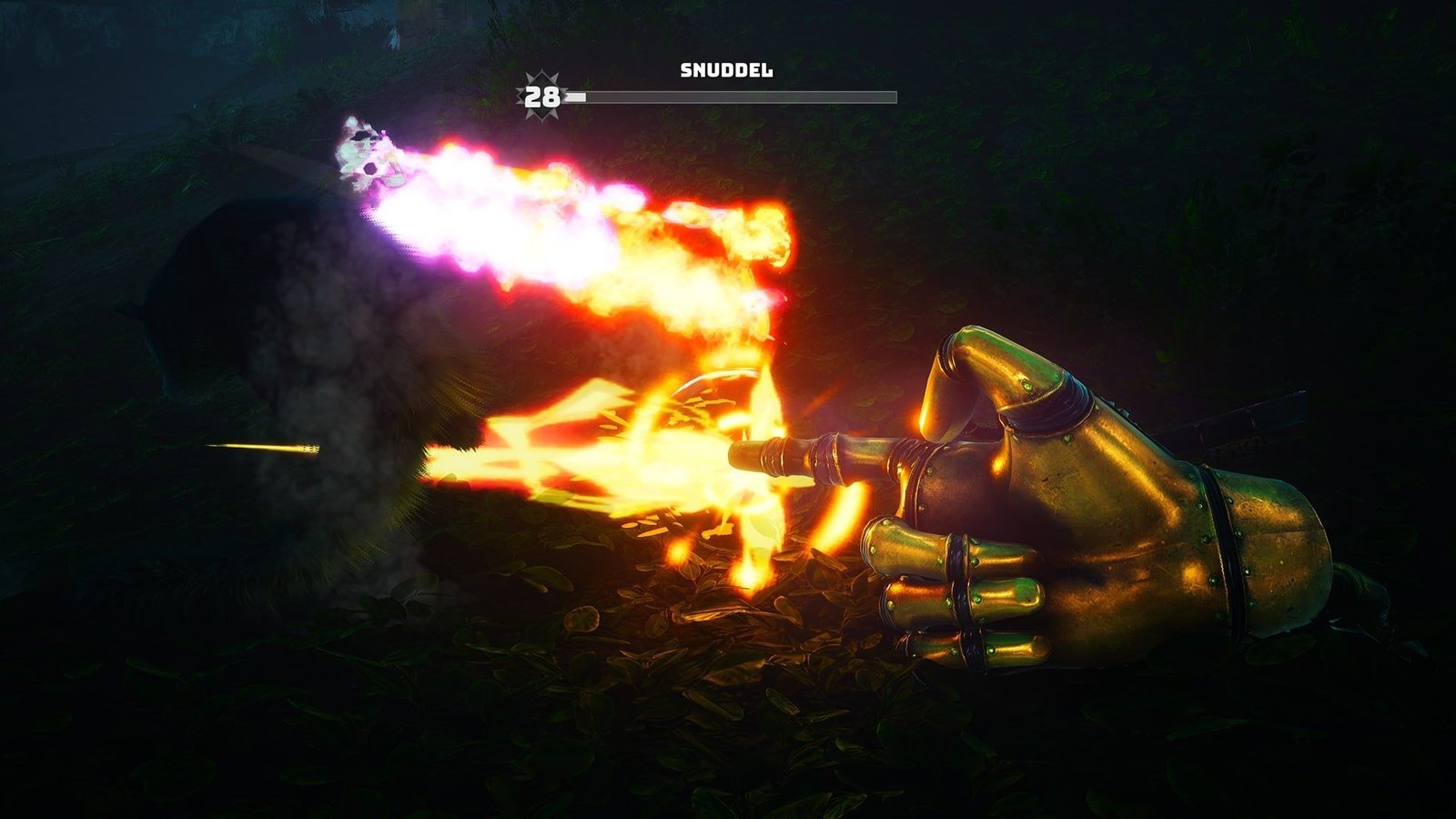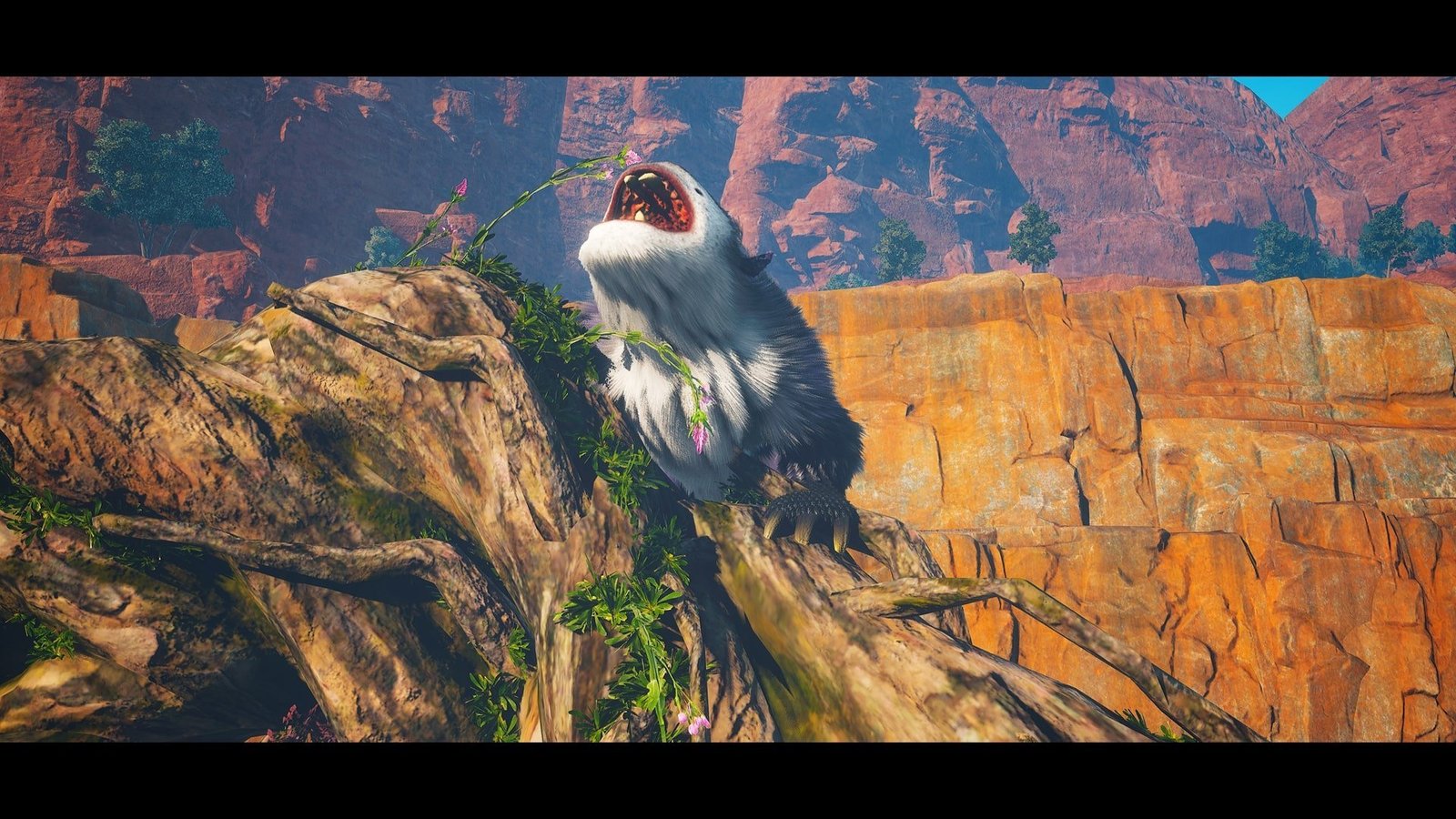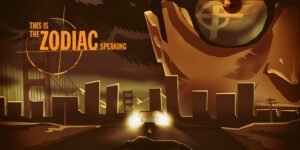(Reviewed on Xbox Series X by Games of DAYNE)
The end of days is upon us in Biomutant. The world lies in ruins as four monstrosities known as Worldeaters seek the destruction of the Tree of Life, an event that will see the destruction of the planet and the extinction of all living things that inhabit it.
Exploring the post-apocalyptic open world reveals diverse biomes that are each home to quirky characters and unique enemies. Perhaps the most important inhabitants are the Tribes that rule them, Tribes that can be united to face the Worldeaters together or mercilessly conquered. These decisions are just a few that will shape the fate of the world in Biomutant, an epic kung-fu fable RPG that puts players in control of their own destiny amidst a power struggle of light and darkness.
Mutation is more than a plot device in Biomutant, it is a core element of the gameplay and specifically the customisation. In a world ravaged by bio-contamination, the wildlife and sentient beings that inhabit it have been subject to mutations that have altered their genetic structure and therefore their appearances and physical capabilities.
Biomutant opens with character customisation that offers great depth and personalisation of the character that players will embark on their journey with. Six breeds are available to choose from, each offering unique base stats. This is also the introduction of the narrator who is ever-present throughout Biomutant and narrates events as they unfold, the world as it is explored and essentially translates the dialogue of every character as they only speak what is referred to in-game as “gibberish”.

From there the player is able to mutate their genetic structure, favouring agility, intellect, strength, vitality, charisma or a balance of all five. Genetic resilience in preference of heat or cold and biohazard or radioactivity allows the player to set their initial resilience to the genetic hazards that are found throughout the world with certain areas that will harm or ultimately kill the player if they are not genetically enhanced to survive it.

An assortment of fur styles and primary and secondary colours round out the cosmetic customisation of the character creation suite and are fun, varied and interesting enough that the whole customisation process feels fleshed out and genuinely difficult to settle on the perfect character.
Finally, the player is able to select one of five classes:
- Dead-Eye is a tricky, skillful rogue who’s chosen a life outside law and society values.
- Commando is trained as an operative of an elite special operations force. Commandos are used to working in smaller teams.
- Psi-Freaks are experimenting with psionic powers and mutations. They’re usually outcasts on the fringe of society.
- Saboteur is a cunning, skilled explorer trained to operate covertly in both suburbs and wilderness.
- Sentinels dedicate themselves to protect a house. Their dedication is for the organisation as a whole, including supreme belief in their dogma.
The class selection allows the player to pick their preferred play style and also influences their initial attire.

With the character creation complete the player is thrust into a tutorial and almost immediately presented with a crossroads, physically and morally. One path is paved on the course of darkness, strength and power while the other represents light, freedom and loyalty. This is merely the first of many decisions that will impact the player’s journey and the in-game moral compass of the Light and Dark Aura which in turn, dependent of their respective levels, opens access to specific abilities later on, as well as influences the world’s perception of the player.

With the path chosen the player is free to set out on their journey, able to make decisions that can influence their Dark and Light Aura in favour of one or a balance of both. Dialogue, actions and environmental interactions influence the Aura, immediately suggestive of replayability to explore both sides to the extreme or balancing them both in future playthroughs.
As an open world experience Biomutant doesn’t force the player to progress the narrative, instead allowing them to experience the world at their own pace. The main quest line essentially tasks the player with confronting the six Tribes that each have their own agenda, variants of uniting, separating, subduing or vanquishing the other Tribes and either defeating the Worldeaters or letting them destroy the Tree of Life, the latter serving as a death sentence to the entire planet.

Focusing solely on the main story itself will see it completed in less than 10 hours while completing the wealth of optional side quests and exploration of the diverse biomes can extend the runtime of a single playthrough immensely.

It is important to note that the completion of the story offers a New Game + mode that allows the player to replay the game with their upgrades and equipment intact, however there is a point of no return prior to the final mission that will require careful save file management to ensure additional activities can be completed without the need for a new save. The ability to save at any time makes this very simple and is an excellent feature that if used regularly can allow players to explore alternative outcomes of their decisions before settling on what they feel is best.

The story is grand in scope with world-ending consequences and tells a personal tale of tragedy that comes to a potentially satisfying or disastrous conclusion based on a number of key decisions available throughout Biomutant. Decisions can change the overall outcome in a number of ways, some more meaningful than others. Packed with heart, responsibility and consequences, Biomutant tells a charming story that, in my opinion, only falls flat in regard to the lack of actual dialogue from characters.
The narrator adds an adventurous charm to the experience but strips away emotional depth, personalisation of the characters met along the way and removes a deeper sense of attachment to the player’s character. The narration frequency can actually be decreased in the settings, but the in-game pop-up occurred for me during the second last mission, something that would have greatly influenced my experience early on.
Tribes each have three outposts that must be conquered before the final confrontation with the Tribe’s leader can take place. The missions that lead to these outposts are unfortunately shallow and repetitive, tasking the player with defeating a beast, activating a mortar-like weapon or poisoning a water supply for instance. Once an outpost has been cleared vendors for clothing, melee and ranged weapon crafting components, consumables and a unique mount become available. In most cases the outposts of a single tribe are unfortunately all laid out exactly the same with characters in the exact same spots doing the exact same things and loot boxes in the exact same locations. Defeating or uniting with a Tribe grants access to their unique tribal weapon which brings with it unique Wung-Fu abilities to be unlocked.

Wung-Fu encompasses all aspects of combat in Biomutant. Melee combat revolves around single handed, double handed and dual wielded weapons and ranged combat comes in the forms of guns and weapons such as bows.
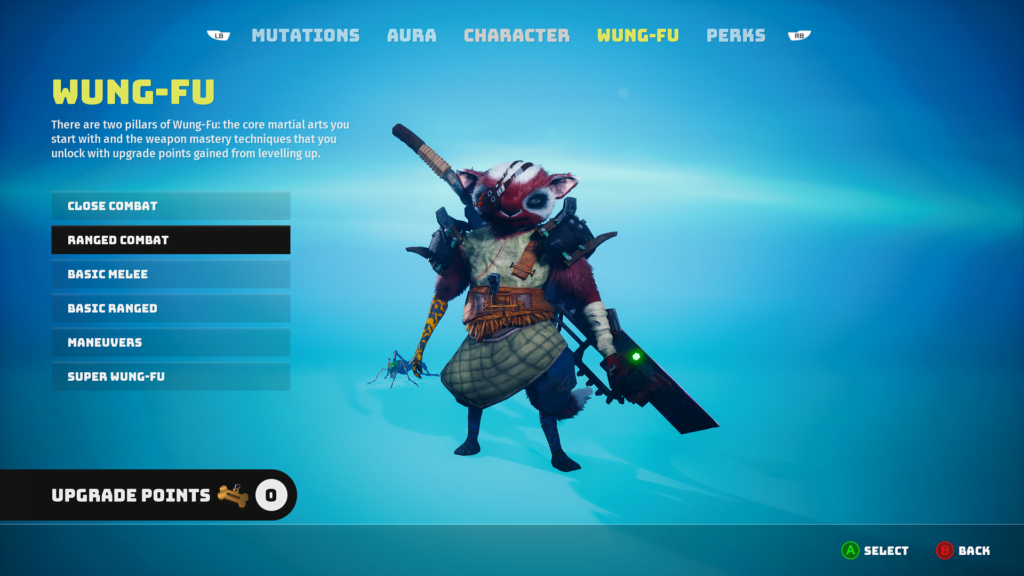
Combining melee and ranged combat with the psi abilities to pull off devastating but simple to execute combos is a lot of fun. Psi abilities include the likes of elemental attacks using fire, poison and teleportation, with some abilities gated by the Light and Dark Aura morality system.

All aspects of Wung-Fu from melee, ranged and psi abilities can be unlocked by spending various in-game points earned with progression. Combat is fun to experiment with and the integration of melee and ranged attacks with psi abilities affords enjoyable experimentation.
Stringing together successive special attacks will fill a single Wung-Fu icon and when three unique special attacks have been used the player can enter Super Wung-Fu mode which brings up a handful of button prompts to unleash maximum damage for a brief period of time.
Perks can also be unlocked and equipped that provide passive stat buffs with increases to damage and speed for example.
Accompanying the player at all times is the Automaton, a mechanical insect. It acts as a flashlight that activates automatically in darkness but can also be upgraded to provide further functions such as a health injector, glider, turret and damage boost.
The world is littered with signposts that can be interacted with that act as fast travel points. These can be accessed at any time and make for traversal of the generously vast map very simple. These signposts are unlocked by interacting with it which amusingly is done by urinating on them. It’s certainly a unique interaction and adds levity to a game that is otherwise shrouded in dire situations and consequences.

Traversing the map with mounts is an alternative option, with dozens of different types to either be bought at outposts or tamed in the wild by interacting with them while in possession of specific seeds. These seeds are found in bushes that need to be slid underneath to collect. The mounts are visually creative with some fun species to find. Colour variants of most can be bought and the preferred mount can be selected from the transport tab of the menu at any time and summoned with the D-Pad. They aren’t particularly fast, but are still faster than travelling on foot.

Later in the game with story progression special vehicles become available to access and summon in specific locations. These can be upgraded to be more effective too and open up the exploration possibilities immensely for players seeking to explore every nook and cranny that Biomutant has on offer.

The weapons of Biomutant are interesting to say the least, largely due to the diverse and creative weapon crafting and customisation available. Weapons, both melee and ranged, can be crafted by using found or purchased components and mods. Choosing a handle, blade and various mods for weapons results in a unique weapon being crafted with its own wild and whacky name based on the components used to create it. Elemental damage and other effects based on the components used allow for an incredibly diverse weapon system that truly allows the player to engage their enemies however they want.

All weapons, crafting components and clothing items have a rarity, quality and material value that influences their damage, effects and sale value at vendors. These can be upgraded, or greater value components can be added to the weapon to increase its overall value and stats.
The world of Biomutant is visually stunning. Its charming character design and environments are creative, unique and vibrant. Stumbling across broken highways, deserted towns and polluted power plants for instance are so striking and visually interesting, every aspect of the map feels genuinely unique. It’s a shame that Tribe outposts look the same because the rest of Biomutant’s world is so different and varied, with no two areas looking the same. It really feels like a world in ruins, once full of life and now nothing more than a burial ground to the world that once thrived.

The sound design is beautifully executed with a score that knows when to up the ante with the on-screen action, shift to ominous and moody for the discovery of areas once full of life and dramatic for the story beats that depict the trauma the player’s character has been through in the narrative flashbacks for example. Playful sound effects and lively grunts and noises from the enemies and wildlife keep the world feeling alive and dangerous at all times.

Biomutant showcases mutation in all of its glory on a visual level with its environments and playful character design while embracing it in all aspects of character customisation. The story is personal yet grand in scope and stakes with choices that matter, particularly as the end of the world looms and the player’s decision to be its destroyer or its saviour. Fun combat, enjoyable and creative customisation and a plethora of optional objectives to tackle, as well as the New Game + mode encourage replayability.

Biomutant tells a story with experiencing, offers choices that matter and a world to explore that is beautiful, tragic and rich in its own lore that demand attention. There is so much mythology to discover and digest that is genuinely interesting and moreish.

The brevity of the main story is perfect around the 10-hour mark and allows developer Experiment 101 enough time to tell the story they want to tell without stretching it out unnecessarily and welcoming fatigue or disinterest. Dozens of side quests to complete, tons of secrets to discover and plenty of experimentation with gear and weapons allow players to explore the world of Biomutant with as much depth as they want. The inclusion of the Light and Dark Aura system, as well as how to handle the Tribes simply screams replayability and thorough exploration to get as most out of the world as possible. The fate of the world is in the players hands and the road to that decision is up to them every step of the way.
+ Incredible customisation
+ Fun and engaging gameplay
+ Stunning environments
+ Solid character design
+ Replay value
– Narration eliminates a lot of the emotion of the dramatic moments and scenes
– Tribe outpost asset repetition
– Slow traversal speed, even on mount

Developed by: Experiment 101
Published by: THQ Nordic
Release Date: May 26 2021
Platforms: Xbox One/Series X/S, PlayStation 4/5 and PC
* A digital code was provided as a team member of One More Game/Xbox Gamer Dad for the purpose of this review *
– Additional Links –
For more of my reviews, click HERE.
For this and additional reviews, latest news, trailers and more from the rest of the team at Xbox Gamer Dad and One More Game, click HERE.
Don’t forget to also follow Games of DAYNE on: Twitter, Facebook and YouTube!
All digital photography was captured in-game on an Xbox Series X by Games of DAYNE

